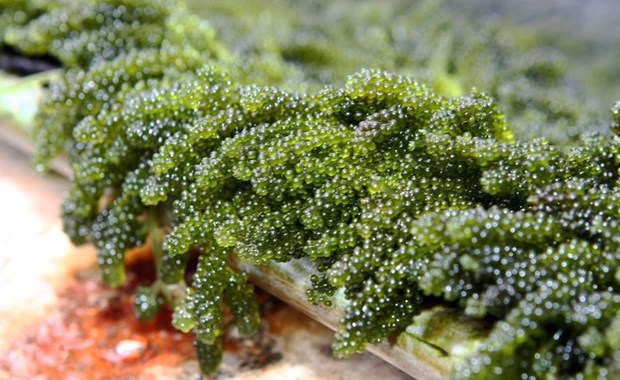 Economy
Economy


|
| Grape seaweed was first cultivated in the south-central province of Khánh Hòa in 2004. — Photo vneconomy.vn |
KHÁNH HÒA — With a diverse marine ecosystem, Việt Nam has favourable conditions for seaweed farming, which, however, have yet to be fully tapped.
To boost seaweed farming effectively and sustainably, experts have stressed the need to supply quality seeds to farmers, step up the application of high-technologies and utilise the certification system to ensure product quality, biosecurity and environmental safety.
Competent agencies and banks should offer preferential loans and other incentives to encourage small-scale seaweed farming households to set up links in production, they said.
Đoàn Văn Danh, a seaweed farmer in Sơn Hải Hamlet, Phước Dinh Commune, Thuận Nam District, the south-central province of Ninh Thuận, said seaweed seed and consumption market were the most important factors.
He also stressed the links between farmers, businesses and the State to ensure sustainable production.
Grape seaweed was first cultivated in the south-central province of Khánh Hòa province in 2004. Currently, the province is home to about 100ha of grape seaweed, with an annual capacity of 10-20 tonnes per ha.
Trần Đình Luân, general director of the Directorate of Fisheries, said his agency was coordinating with the World Wide Fund for Nature in Vietnam to implement a project on developing sustainable seaweed chains in the country.
The project was expected to help farmers raise productivity, meet market demands, expand production area, lengthen the value chain and move towards circular agriculture, he said.
According to the Directorate of Fisheries, the area of cartilage seaweed (Kappaphycus Alvarezii) in Việt Nam would reach 900,000ha, equivalent to 600,000-700,000 tonnes of dried seaweed per year.
The country now has 20 types of seaweed containing agar which is used in food processing. — VNS




